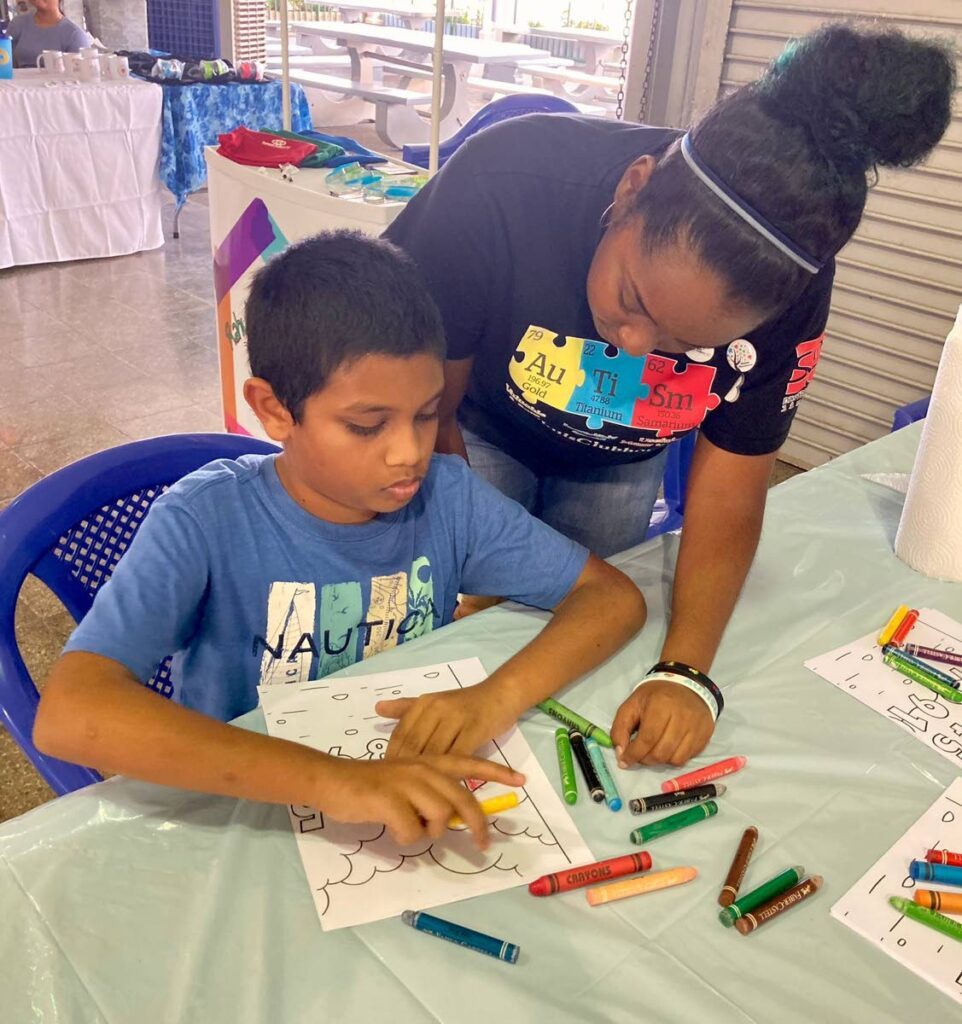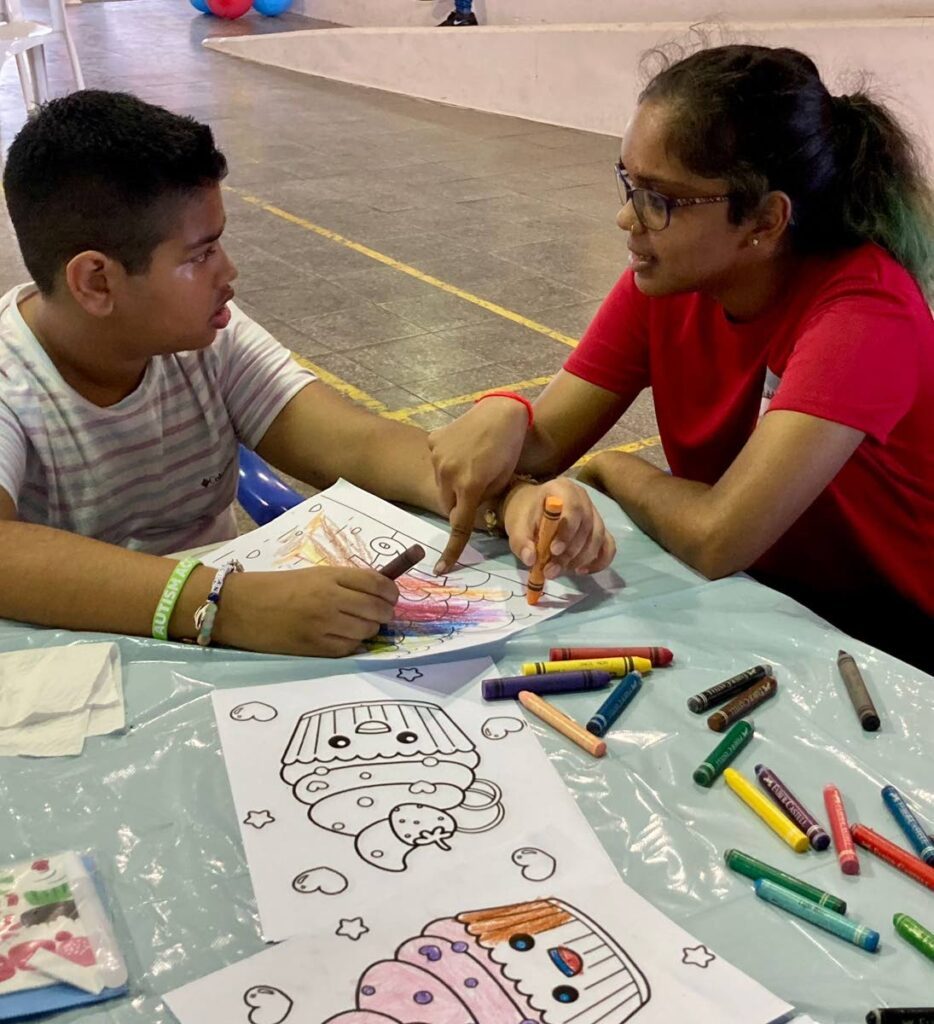Children being denied an education

DR RADICA MAHASE
It’s an exciting day today for most of our nation’s children, as they return to school after the July/August vacation! It is a happy day for those who are looking forward to seeing their friends again and maybe a day marked with anxiety for parents who are sending their children to schools for the first time or to new schools. No matter what the emotions, they are lucky to have been accepted into a school, fortunate to have a school to go to.
You see, there is a small part of our population of children who have been denied an education and continue to be denied an education. This group comprises some children diagnosed with autism as well as some children with physical disabilities and some with other types of special needs. In the absence of general data for our country, the data from children registered at Rahul’s Clubhouse, an autism centre located in Marabella, indicates that out of 75 registered members, 60 per cent of all registered members do not have a school to go to this morning. Given that the right to an education is one of the rights of the child, why are these children not in school and furthermore, what is being done to change their situation?
First, there are those who were not accepted into a public school – government or denominational. One frustrated parents stated, “I filled out the application forms for four different schools earlier this year. I submitted all relevant documents and I waited like all the other parents. When schools started calling up parents from April/ May I prayed that I would get a phone call too. By June, when none of the schools called me, I started following up with them. My child wasn’t accepted into any of the four schools. It was always something – they don’t have any teachers trained to teach students with special needs; they don’t have any space remaining. One school told me that my son will need an aide and they don’t know how long it will be before one was allocated so they couldn’t take him. My son has to remain in pre-school for another year and we have to do this applying thing all over again next year because I cannot afford to send him to a private school.”

Then there are those students who were attending schools but had to withdraw for different reasons. Some withdrew because they were overwhelmed or lost in the system. They simply could not keep up with a system based on a standardised curriculum and evaluation, a system that does not cater to differential learners or students with exceptionalities. As one parent stated, “My child is excellent in maths but had difficulties reading and writing. His level of maths was way past his classmates but because he did not write good, the school kept him back for two years. Then he became the oldest and tallest student in his class and the others started bullying him. It became really bad, he got depressed and would get meltdowns every morning when we got in the car to go to school so we had no choice but to withdraw him from school.”
Many of the older children, the teenagers, have not attended a school for quite a few years. Even in pre-covid times, they were not in school. One parent said she was told to take her son for behavioural therapy and when he learns to behave then the school will let him come back. Another was told that the school could not handle her son because he was only acting up and kept getting up to walk. Then there are those children who are confused by the changes – the transition from physical school to online learning and then back to physical school. Consequently, there is an increase in the number of children who are not enrolled in any educational institution, public or private.
It is distressing to see that we have children who are presently not receiving a formal education. It is even more annoying, given that our Inclusive Education Policy clearly states,
"As a member country of the United Nations and signatory to the Universal Declaration of Human Rights, the Trinidad and Tobago Government affirms its commitment to the fundamental principle of equal opportunity by acknowledging the right of all children to receive education without discrimination on any grounds.”
In case one is not familiar with the concept of an inclusive education, the policy is very clear, “Inclusive education is based on the Ministry of Education’s philosophical direction that every child has an inherent right to education, that every child has the ability to learn and that schools should provide for all students, programmes which are adapted to varying abilities.” Of course, the Inclusive Education Policy very glamorously speaks about equal opportunity, valuing diversity and equitable access, amongst other things.
Why then, 61 years after independence, with the existence of an Inclusive Education Policy, in the year 2023, we still have students who are not accepted into public schools or who have to withdraw because of their special educational needs? Surely by now the Government, specifically the Ministry of Education knows what needs to be done? If it doesn’t, then I would strongly suggest that it starts with data collection to determine the exact number of students with special needs who are not receiving an education. Of course a more concerted effort is needed to effectively implement our Inclusive Education Policy – more staff for Student Support Services; hiring more teachers trained in special needs; allocating trained teacher’s aides and eventually revamping our archaic curriculum.
For parents who have been denied the opportunity to drop your children off to school today, don’t give up on your children. Make a term plan that will stimulate their minds while they are at home. You can consider teaching them life skills, develop a routine for them and teach them practical things such as gardening, crafts, etc. Remember, learning is not limited to the classroom or to a teacher in a school, they can learn from you as well.
Radica Mahase is the founder/director of Support Autism T&T

Comments
"Children being denied an education"